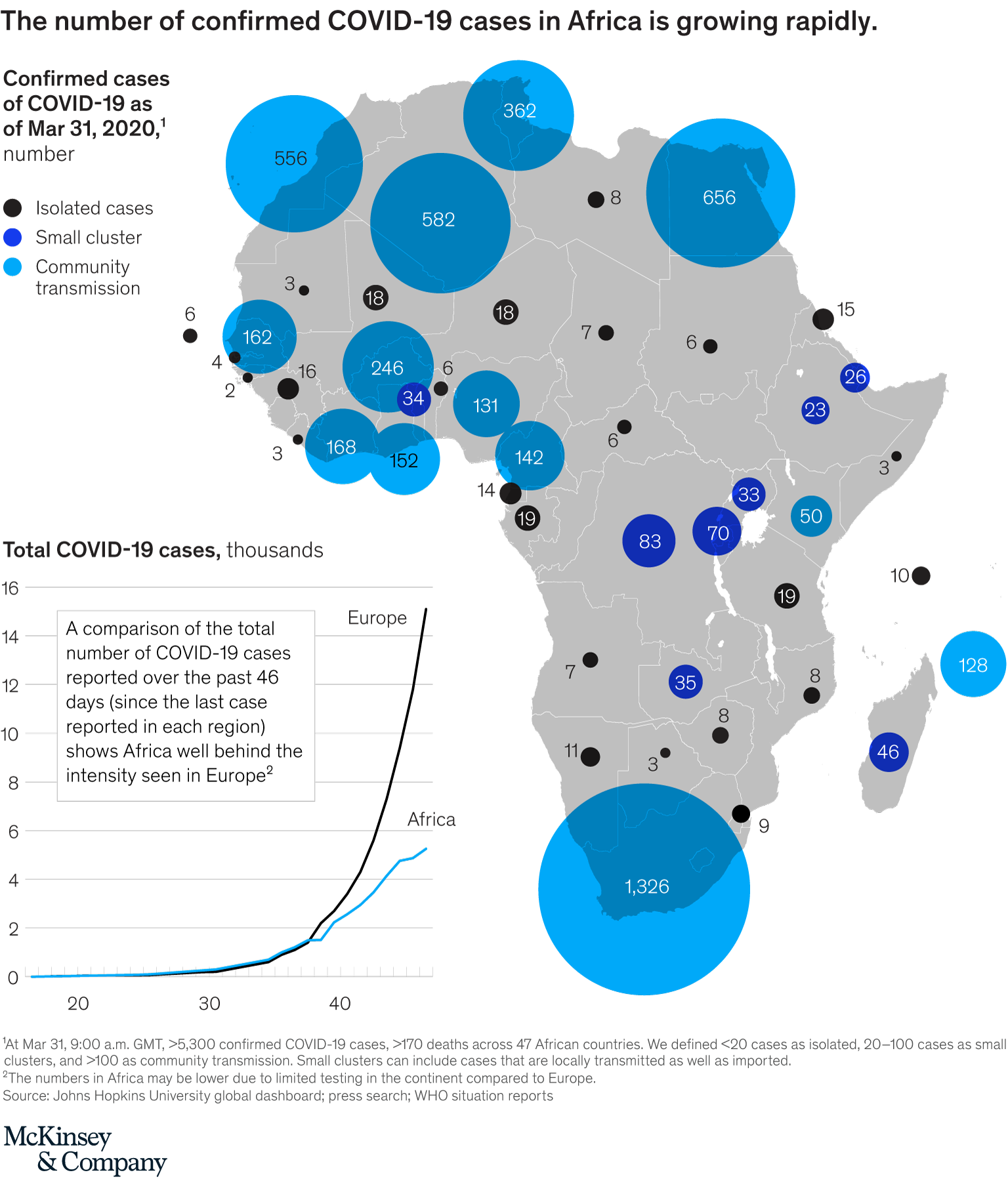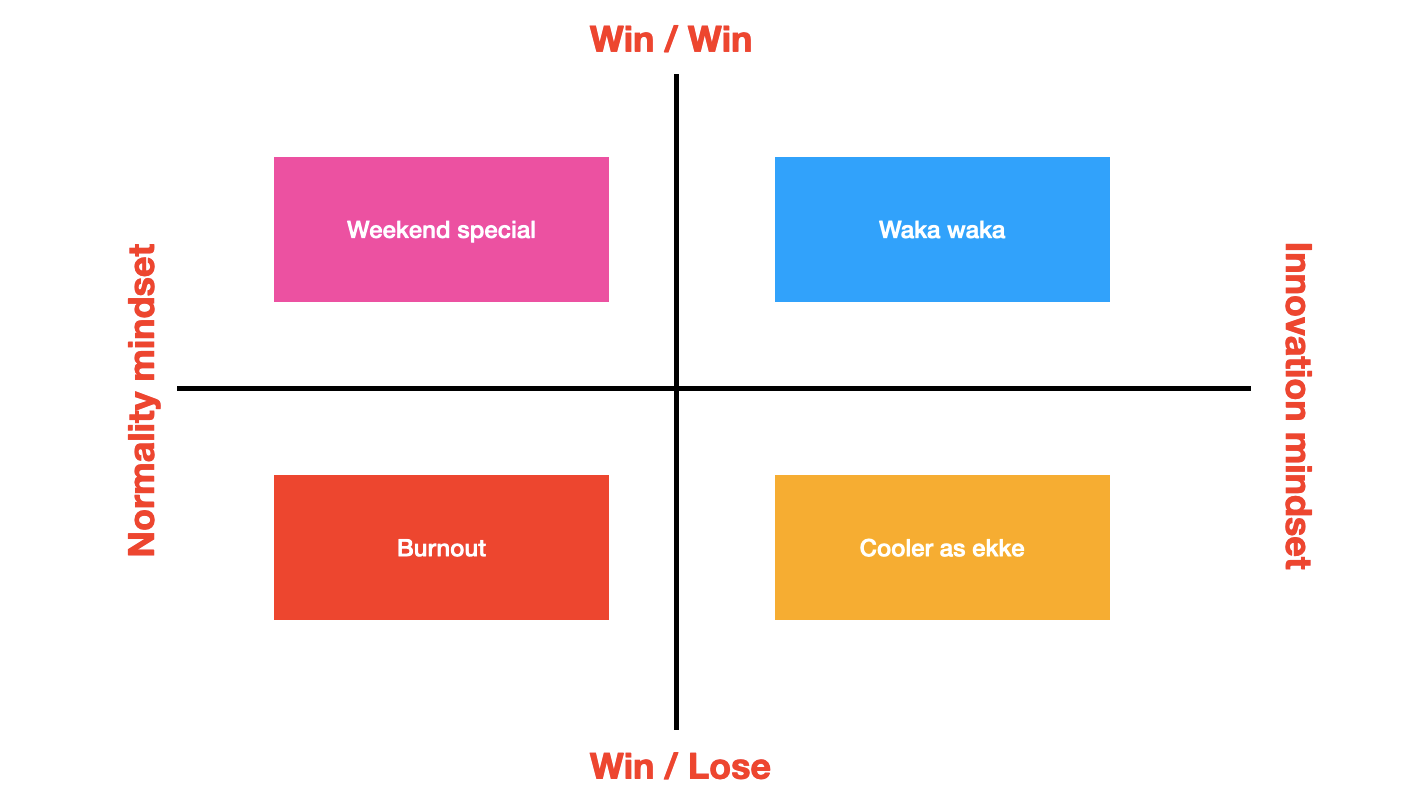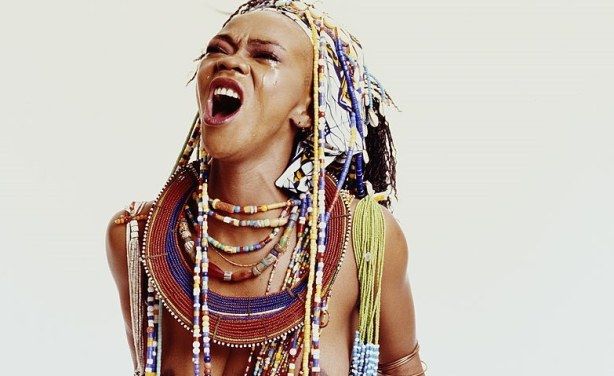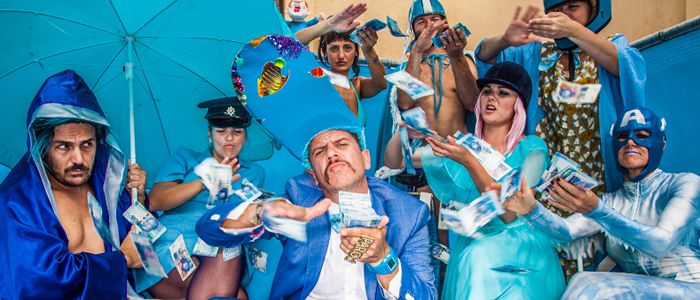The future of South Africa after the covid-19 lockdown
There are four possible future narrative scenarios for South Africa; I have named them 'Burnout', 'Weekend Special', 'Cooler as ekke' and 'Waka waka'.
Make no mistake - South Africa will be a very different country after this 21-day shutdown.
The South African economy was on its knees before the coronavirus pandemic arrived in the country.
Then at the end of last month, just after President Cyril Ramaphosa had ordered the country into a 21-day lockdown, Moody's downgraded South Africa to junk status - following what the other rating agencies had already done - indicating to the world that South Africa is simply not a destination you want to be investing your money in.
Already the CEO of the Edcon Group is giving teary radio interviews, warning that he forecasts an imminent problem with paying their suppliers for orders placed.
One of South Africa's biggest retailers, TFG have unlawfully decided to suspend payment of the rental of their stores. The outlook for the manufacturing sector in South Africa is so bad that researchers are warning that many factories in the country are predicted to never open again, once the lockdown is lifted.
This is just the start of the stream of financial default stories that are yet to come.
Some South African economists are warning that the economy could contract as much as -10% in 2020, while others are forecasting that the worst case scenario for Africa-at-large is so dire, it's almost too painful to even contemplate. This would undoubtedly set in motion an economic collapse that will send the country into an economic depression for the next 5 years at a minimum.
Respected global academics are warning that the way the world was before March 2020, will never return again.

Once the lockdown is over, the virus has been brought under control (whenever that might be) and we all start to go back to work, that won't be the end of the crisis; in many ways that'll just be the start of the pending economic pandemic.
This isn't a doom and gloom prediction - this is the reality of the situation according to how we currently measure the performance of an economy.
But before you throw yourself in front of a weirdly functioning Metrorail train, there is also evidence of something else going on.
More than most nations on the planet, South Africans are used to disruption.
We are used to electricity blackouts, water rationing, non-existent public service delivery, ratings agency downgrades, the embarrassing antics of corrupt leaders and general systems collapse - and we know how to navigate our way around them all.
As a nation we are resilient, resourceful and flexible.
During this short time in lockdown, what has really been amazing to see is how quickly neighbourhoods of strangers come together in times of need.
How seamlessly parents are able to find ways to keep their kids entertained and busy - how quickly homebound professionals have become home cooks, gardeners, inventive social entrepreneurs, video conferencing gurus and online exercise and meditation naturals.
Under 'normal' circumstances South Africans are stubborn and largely set in their old ways of doing things, but when forced by extreme urgency to reinvent themselves and their mindsets, they are some of the most innovative and entrepreneurial people on the planet.
Our history in this country is one of violent and socially-engineered separateness. We have all grown up believing in, and perpetuating the narrative of 'the other'.
'The other' being defined as racially-different, economically-different, culturally-different, intellectually-different. We draw comfort and community by embedding ourselves physically and mentally with the familiar, but again; when forced to do so - experience time-after-time confirms, that we actually achieve more in win/win partnerships with others.
Ironically, it always takes a crisis to remind us of our national strengths, but sadly just like Cinderella when the clock strikes midnight; and the urgency passes, we go back to our entrenched old-style of thinking and forget about how powerful we were in partnership with one another.
Will this time be different?
Will South Africans have a permanent shift in mindset where we realise that our best shot as a country will be to work collaboratively towards a common goal; and where we leverage our inherit entrepreneurial and innovative spirit to unlock new markets and opportunities for all in an equitable and holistic way?
The futures of South Africa post-covid-19 lockdown
When considering what the future looks like for South Africa after this crisis - there is always more than one future available to us.
The future that we end up realising will be the one that reconciles itself depending on our societal manoeuvring on two key factors - innovation and fostering a mindset of win/win.
Much will depend on whether we as a society can recognise the fact that the socioeconomic path that we were on was already clearly not delivering the economic prosperity required to accommodate the country's growing and rapidly urbanising population - and whether or not we can capitalise, in the longer-term, on the lessons that we are reminding ourselves of during this lockdown.
To labour the point once again - the formula that we have collectively adopted up until now - wasn't / isn't working.
Innovation
The structure of the economy wasn't delivering the innovation to open up our markets to more participants.
It wasn't delivering the world-class products and services that we could trade for valuable foreign exchange.
It wasn't effectively servicing the needs of the vast majority of South Africans those needs went unserviced by expensive and inequitable value creation.
In the last book that he wrote, The Prosperity Paradox, before his death in January this year, Clayton Christensen argues that poor countries are best developed through the introduction of market-creating innovations, which service the needs of those that are largely ignored by current value mechanisms and create new ways in which people can gain access and contribute to an economy.
The effective leveraging of innovation in South Africa has not been a significant driver of our economy to this point, but the impact that a widespread culture of innovation should have on our future is undeniable.
Win / Win
Also, by following the narrative that has largely been accepted as the norm by most of the world of: winner takes all, survival of the fittest, if I win - somebody else must lose - we have compounded an unsustainable condition of income and wealth inequality.
The alternative to this old narrative is one which author Stephen Covey covers in some detail in his bestselling book; 'The Seven Habits of Highly Effective People' - that is 'think win / win'.
The impact a more equitable measurement model of success in our economy would have in the future would profoundly influence the overall long-term sustainability of the system in a positive way.
Four possible scenarios for South Africa
Based on this logic, there are four possible narrative scenarios for South Africa; I have named them 'Burnout', 'Weekend Special', 'Cooler as ekke' and 'Waka waka' - you may recognise these as also names of famous South Africa hit songs.
Let's go through each one:

Scenario #1: 'Burnout'

The Burnout scenario is the least favourable of the collection presented here.
This scenario manifests as a result of society trying to go back to 'the way things were' before the crisis and maintaining an attitude of individualism where the prevailing mindset is one of 'winner takes all'.
In this scenario - once the pandemic lockdown has passed, South Africans try to rebuild after an extended period of disruption.
Large parts of the population suffer from a mild form of post traumatic stress disorder (PTSD) as a result of the challenging lockdown experience and many find it difficult to view the future of the country in an optimistic way.
After months of closure, many small businesses simply cannot reopen their doors again.
They declare bankruptcy, retrench their staff and go into liquidation. This sets in motion a disastrous knock-on effect where individuals try get as much out of these settlements as possible and a flood of legal action jams up the judicial system. Retrenched workers try to claim from UIF, which simply cannot cope with the demands placed on the fragile system.
Jobs at the companies that remain are in short supply and the resulting economic depression that follows means that the demand of skills in the local market is lacklustre for years to come.
Due to a protracted global shutdown as a result of the pandemic, governments around the world are under severe economic pressure to stabilise their financial and economic systems. Without global support the South African government is not able to offer much in the way of assistance to the growing number of unemployed people in the country.
South Africa enters an economic depression that lasts for years, while other countries, that are able to transition towards more innovative and sustainable approaches, thrive. Those that can emigrate; and South Africa is on the longest and most uncertain road into the future.
Scenario #2: 'Weekend special'

Weekend special is the second scenario for the future of South Africa, post the covid-19 shutdown.
In this scenario, South African society recognises that inequality represents an existential risk to the sustainability of the economy, thanks largely to lessons learnt from the inequitable access to proper healthcare services around the world; and how that was identified by the World Health Organisation as one of the primary drivers of the spread of the epidemic.
On the back of a rapidly shifting global mindset, where large numbers of people begin to realise the interconnected nature of our society - and trends like the growing popularity of veganism, sustainable fashion initiatives, the war on plastic, flight-shaming, the move towards minimalism and a growing support for locally produced products; the overwhelming focus in the South African economy becomes about unlocking win / win solutions in the economy.
With this new perspective, civil society bands together to ensure that entrenched corporate giants source higher percentages of their supply chains from local producers.
Many businesses and individuals redesign their business models to include contributions towards charitable causes, and there is a renewed call for King IV governance guidelines to be strictly adhered to and enforced.
However, the traditional economic structures remain, thanks largely to significant government bailouts of SAA, the banks, large tourism-focus corporations, the big clothing retailers and the mining sector. As a result, there is little incentive for skilled individuals to take the risk of an entrepreneurial-future under conditions of the recapitalisation of traditional economic structures of power - and this golden opportunity is lost to the country.
Although the renewed win / win sentiment is a positive improvement in the collective mindset of the country, without the leverage to create brand-new, more future-fit innovations to unlock growth in the economy, the good intentions are short-lived.
Without the radical structural reform needed, the South African economy continues to reinforce the status quo of inequality and low economic growth.
Scenario #3: 'Cooler as ekke'

The third scenario is probably the most likely.
In this future, the lived-experience of going through a protracted period of lockdown spurs an unprecedented wave of innovation from big corporate giants, as well as individual entrepreneurs.
There is a real sense of urgency throughout the world, as well as in South Africa, that this kind of disaster should never be allowed to happen again and creative and innovative responses are quickly mobilised.
Significant investments are made in digital retail platforms, online learning, logistics, local manufacturing and healthcare. Inspired by their time in isolation, and seeing huge gaps in the local market, South Africans set about re-designing and re-engineering the models of numerous product and service offerings.
The emergence from the lockdown is heralded as a 'new era of innovation' by academics, business leaders and local politicians alike.
Companies scramble to set up in-house 'innovation departments' - sensing that there are significant opportunities to leveraged.
The wave of innovation that followed the lockdown enabled many businesses to become far more operationally efficient and for many, this translates very favourably into better profit margins over the medium-term time horizon, but this economic turnaround is short-lived.
The unifying sense of community and partnership that was so prevalent during the lockdown, quickly dissipates as life slowly starts to go back to normal after the restrictions are lifted.
Old entrenched capitalist mindsets and hierarchal business process cultures, chisel away at the more open paradigms that were awakened during the crisis. The shiny new innovation teams are retrenched and the brightly-coloured 'thinking studios' are closed.
Conditions of youth unemployment, economic inequality and widespread poverty for the majority of the South African population worsen, sparking mass protests and disruption throughout the country and a stagnant economy that endures for years.
Without new market-creating innovations that create new channels of access to the possibility of prosperity for all, the promise of the much-needed South African economic dividend is squandered.
Scenario #4: 'Waka waka'

The fourth scenario, 'Waka waka' is the best-case future scenario available to South Africa; and is the preferred future that the country should create the conditions and policy for, in order to manifest.
In this scenario, the collective experience of the pandemic lockdown, as well as a worldwide realisation that our global socioeconomic structures and models are no longer fit-for-purpose for a technologically-enabled and interconnected world, inspire a monumental mental shift in how South African society sees the future development of the economy.
A new spirit of partnership and collaboration, supported by significant regional government incentives and growth-focused monetary policy instruments, combined with an urgency to innovate processes and business models, signals the dawn of a new economic consciousness; where individuals and business leaders alike recognise the advantage of collaborative strategies that distribute financial benefits of commercial activities to a diverse spread of local partners.
Commercial value chains of almost every South African organisation are remodelled to source the majority of their product inputs from local suppliers.
As an example, the big South African food retailers collaborate to create a network of urban farmer's markets where independent small-scale fruit and vegetable producers can sell their produce directly to consumers.
South Africa technology companies form their own coding schools where promising young South Africans are trained for future employment in the country's growing sector.
Inspired by the successful experimentation of remote working during the covid-19 shutdown, new flexible working schedules at corporate companies give working professionals the time and capacity to spend more quality time with their families, as well as develop additional entrepreneurial ideas as a sideline project - many of which blossom into new profitable ventures that drive significant new economic growth.
There is an intense focus on local brand development as business leaders begin to understand and appreciate that to command favourable profit margins from the export market, they need to focus on quality value-added processing and strong branding.
There is national drive to develop innovative brand-new approaches to value creation, as well as a focus on market-creating innovations that service the needs of the previously ignored market-segments of the population. These innovations in-turn create the conditions under which millions of new market participants can develop their own entrepreneurial ventures.
Ignited in part by the pandemic, and government's extreme remedy to the crisis, new channels of access to the economy are opened up to try assist millions of jobless South Africans get back on their feet. One of the major consequences of this is that people take the initiative to become economically independent themselves rather than simply returning to the job market.
A rising trend of sustainable economic growth and prosperity, the likes of which the country has never seen before, follows for years to come.
Now what?
The 'Waka waka' scenario is clearly the future state of South Africa that is the most preferable of the four presented here.
For this future to unfold however, all sectors of society would need to make an honest account of how poorly the structure of the economy, before the pandemic, had delivered on the mandate set out by the National Development Plan. This realisation should then mobilise civil society into action.
Old assumptions questioned
South Africans will need to draw new knowledge from the lived experience of the covid-19 lockdown, which is a dramatic illustration that a continued reality of inequality in a society is simply not sustainable; and that when this unstable reality begins to breakdown, it negatively affects all businesses and citizens equally. Prosperity for some at the expense of others is no longer an ideological academic debate - it's a proven inevitability.
Culture shift
Every business and individual will then need to reflect on this realisation and begin to ask important questions about how they can repurpose themselves and their organisations to contribute towards this new vision. Multiple perspectives and points of view will be vital here and carefully facilitated programs will need to be initiated.
Action
Action will then need to be taken to remodel and remake cultures, processes, capital allocations and strategic priorities. Government and institutional policy will need to be amended to incentivise and restrict behaviour. New measures of success will need to be agreed upon and calibrated.
In conclusion
The 21-day covid-19 shutdown is a significantly painful intervention for the fragile South African economic landscape to endure.
Although necessary to slow the rapid spread of the virus, the long-term economic effects of it could well prove to be disastrous; unless we as a society choose rather to use this crisis as the vital catalyst to change the purposeful intention of the economy to be more inclusive, equitable...and ultimately more sustainable for all of us.
The choice is ours to make now.
Related: Book a remote scenario workshop - Cherryflava

